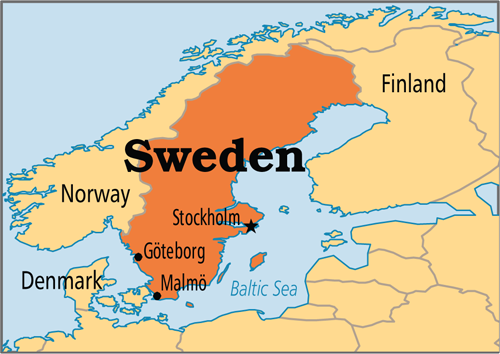Election 2014: Sweden’s political crisis shows why Britain needs to abolish five-year parliaments, Sweden Election news, Sweden Election 2014 updates, Election in Sweden
- Details
- Category: Europe Election News
- Last Updated: Thursday, 22 January 2015 21:14
Election 2014: Sweden’s political crisis shows why Britain needs to abolish five-year parliaments

The Swedish government has just collapsed, not even three months after being formed, and new elections are being called for March. The problem is one that Britain may well soon experience: no one properly won the general election. None of the main parties did well.
The only winners were minority protest parties – the feminists and the anti-immigration Sweden Democrats (a more vulgar version of Ukip). Like Ukip, the Sweden Democrats had enough clout to disrupt parliament but not much else. So Sweden ended up with what Britain may soon get: government by a coalition of the losers.
Stefan Löfven, leader of Sweden’s social democrats, ended up as Prime Minister after his party was humiliated with the second-worst election result in its history. He had to cobble together a coalition of other unpopular parties and he utterly failed to convey what his government was for – other than caving to the demands of the more bizarre minority parties in attempt to survive. And now, just over two months later, Löfven’s government has collapsed.
Also Read: Sweden election 2014: Shock election in Sweden as the Sweden Democrats become no3 party
New elections are now due on 22 March, and Löfven has said that it will help Swedes…
“…make a choice in the face of this new political landscape”.
The ability to call a new election is a powerful tool, and one that David Cameron has foolishly signed away. His Fixed Term Parliaments Act was seen as a wedding ring slipped over Nick Clegg’s finger. At the time, it made sense – it was a promise that Cameron would not conspire with Labour to throw the LibDems to the wolves.
So if the UK Prime Minister ends up in a similar crisis next summer, he will not be able call another election to resolve the impasse, as Harold Wilson did in 1974. Under Cameron’s daft new system, a new election can only be called if two-thirds of MPs agree it – ie, if both Labour and Tory agree to hold a new election. This, of course, will never happen. The timing of an election may suit one of these two parties, but it won’t suit both.
Right now, in private, MPs of all parties agree that Fixed-Term Parliaments Act is madness. Right now, there is cross-party consensus to get rid of it – both parties think that, if they win, they may end up in precisely the same trap that Sweden is now in. In which case, the power to call a new election – if only as a threat to focus minds – is absolutely crucial. But the consensus will vanish after the election. The Leader of the Opposition is unlikely to put whoever is Prime Minister out of his misery.
There is time, now, to change the law, to restore this much-needed power. Both Cameron and Miliband should look at Stefan Löfven’s agony and think: that could be me next summer. Wouldn’t it be handy to have the same powers they Harold Wilson had? So both should now agree that it’s time to repeal the Fixed-Term Parliaments Act, which has served its purpose. And do so while there’s still time. This blog was updated after the election was called.


